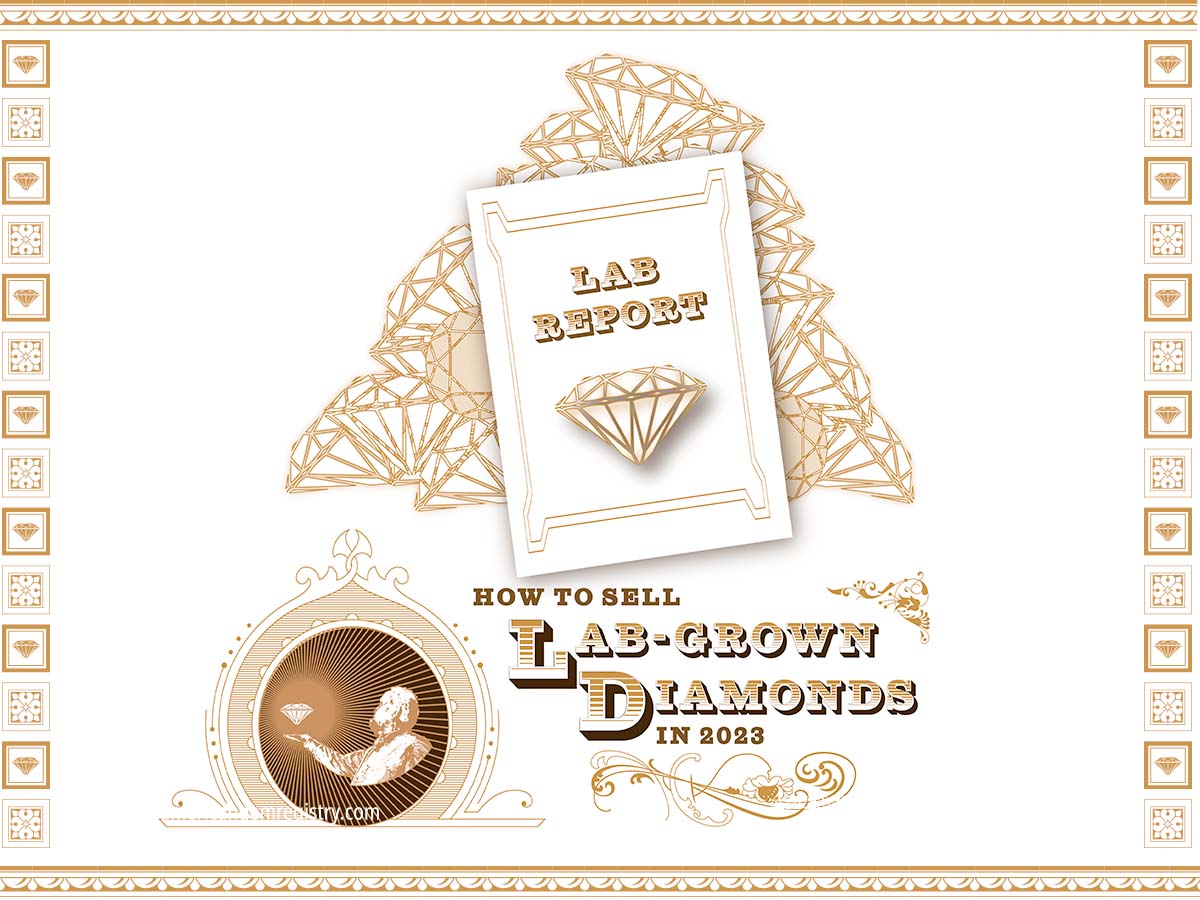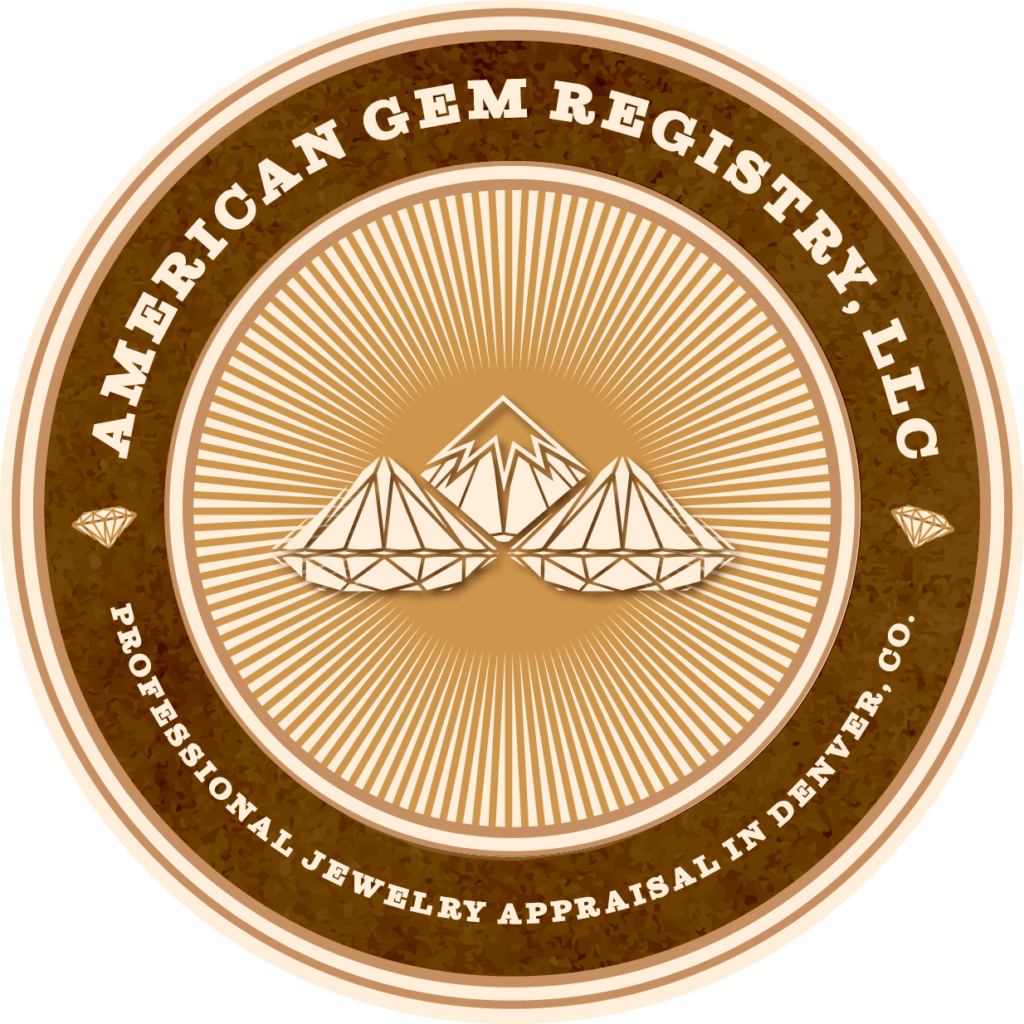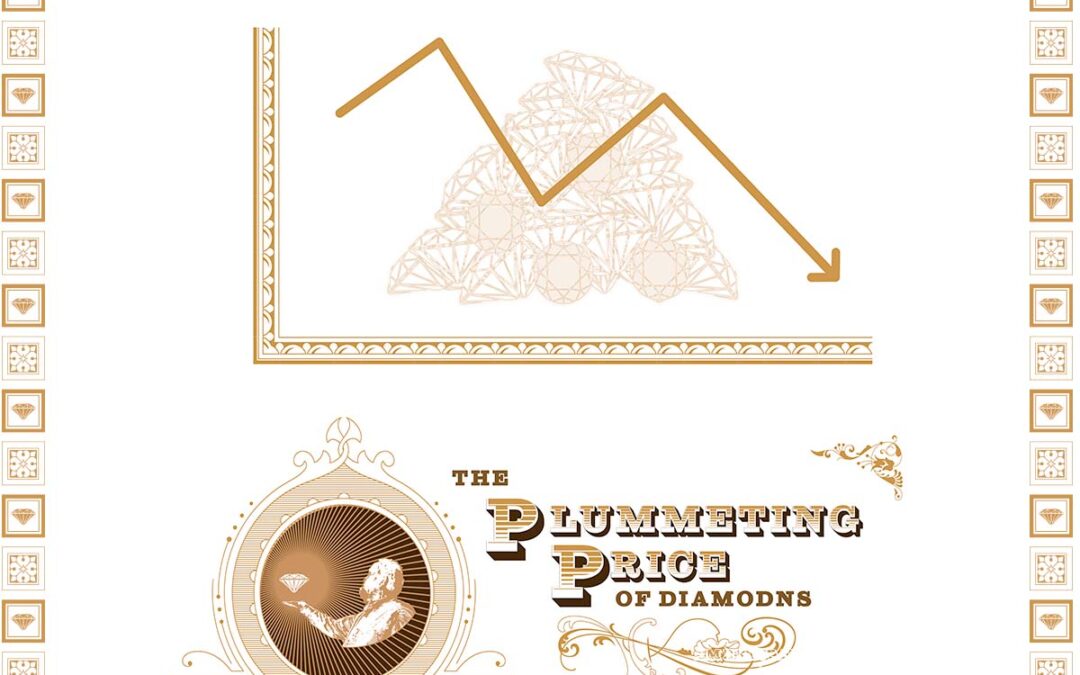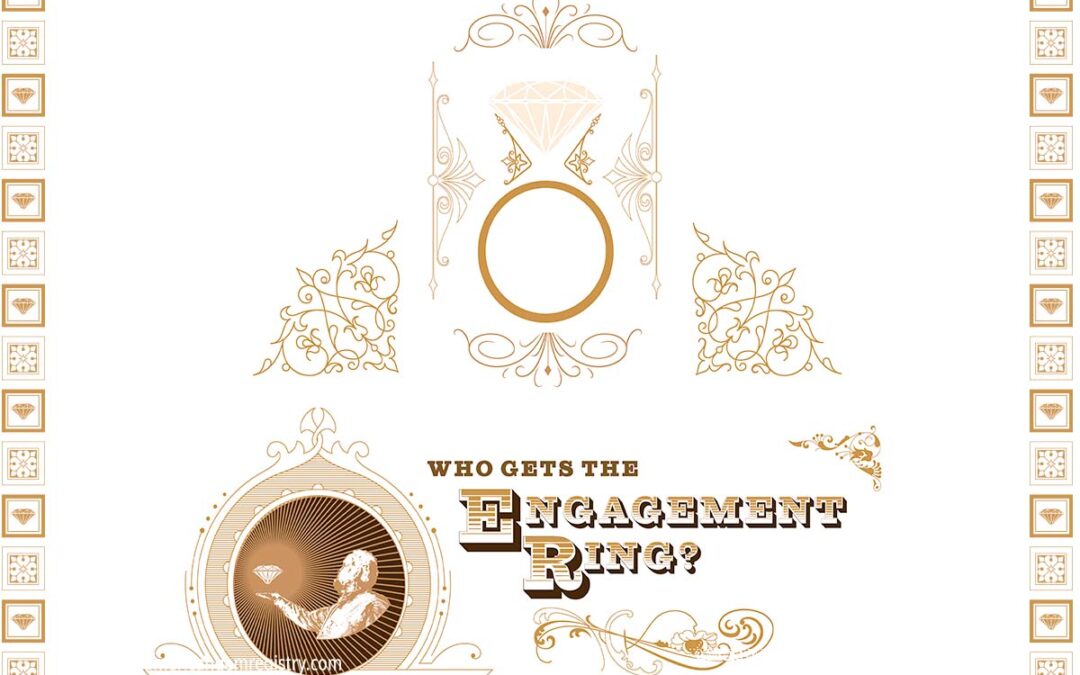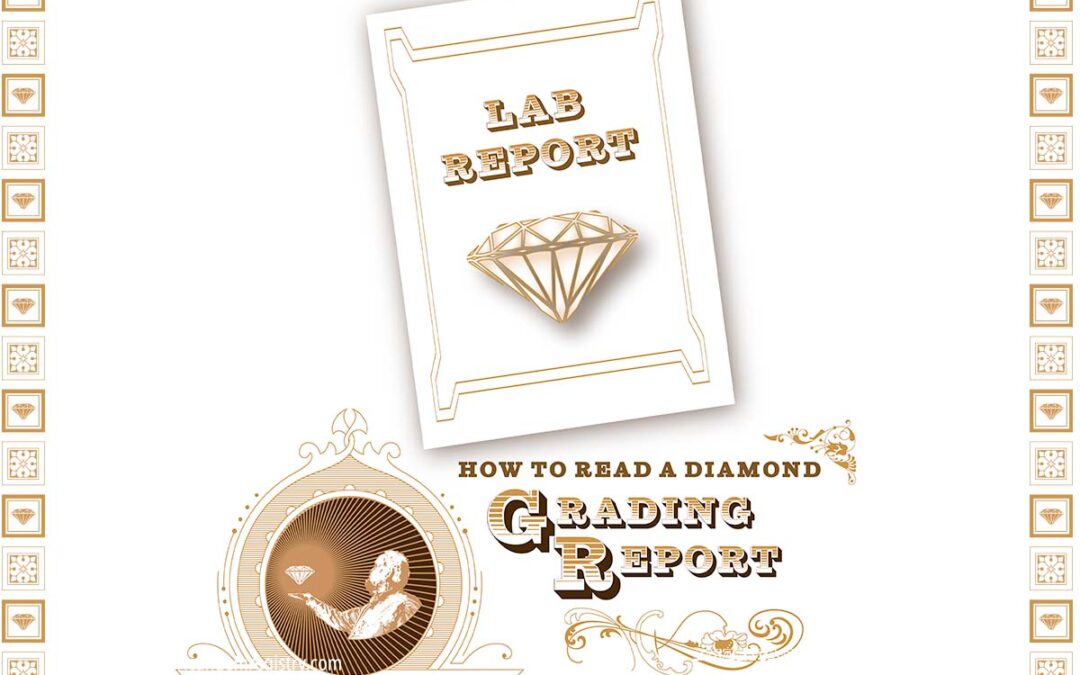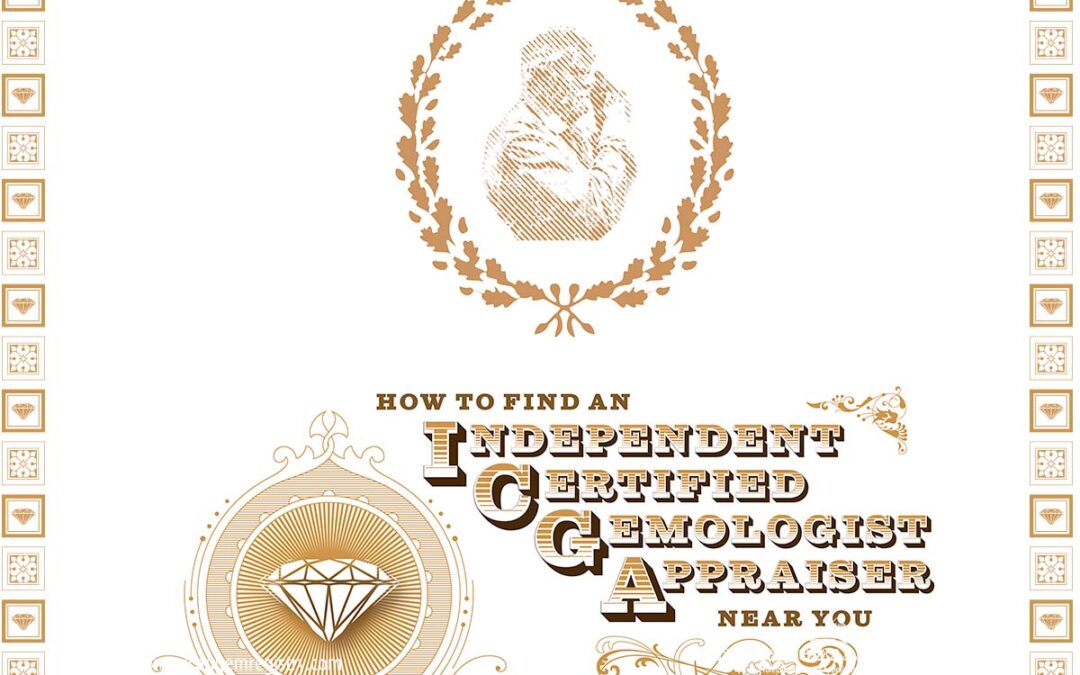If you’ve never tried, selling diamonds is tricky business (especially now), and selling lab-grown diamonds is trickier than their natural counterparts. I’ve discussed why in an article here.
Now that you’re prepared that it’s going to be difficult, how, then, do you actually sell lab-grown diamonds?
Summary
- It is hard to sell lab-grown diamonds in 2023.
- First, find your 4Cs and your “Retail Comp,” by looking at your Grading Report or other paperwork. You need the weight, color, clarity, color and cut (the 4cs) of the diamond. Then use online resources to find a current price.
- There are three possible buyers: Direct sale to a consumer, sale to a dealer, or sale on consignment.
- Regardless of potential buyer, it will be an uphill battle, and you absolutely must have a current Lab Report.
- For several reasons, I normally suggest the traditional independent retail dealers of diamonds for resale, especially if you are planning on selling directly to a consumer.
- Your easiest and fastest bet is to call up your local jewelry buyers, starting with the one who sold it to you, and politely ask if they buy lab-grown diamonds.
Setting the Price.
Pricing is everything, no matter what your seller told you. To make matters worse, pricing NOW is the key issue, not what you paid or when you bought it.
Look at the specs provided on your sales paperwork, like the receipt, and get the 4Cs of the stone from the Grading Report or an Independent Appraisal. You need the carat weight, clarity, color, and cut of the stone. Watch a video.
Then, start shopping as if you were buying one like it. Online works fine here. Go to one of the big online databases like Rarecarat.com, BlueNile.com, or Brilliance.com that includes lab grown diamonds. Enter in your specs and search for what they cost NOW. Ignore the price outliers, just as you would do if you were shopping.
It’s probably going to be less than when you paid, and it’s almost certainly less than what your old appraisal says. Make a note of what you find. This is your “retail comp.” Don’t worry, you won’t be showing this to anyone. It’s for your own purposes. If you’re selling to a dealer, expect your price to be about 40-50% of that number. If you’re selling to an individual, aim at about 75%.
Finding a Buyer.
There are three paths for resale:
1) Direct sale to a consumer.
Craigslist. Ebay. Friends of friends. Relatives. What ties these together is that you are doing all the work, you are taking all the risks … and you get all the money. It is very important to have an objective lab report and independent appraisal.
2) Sale to a dealer.
Pawn Shops, Jewelers, People on the street advertising that they sell gold and jewelry. They pay you. They own it. It’s their problem now. There may be some risks involved. All you have to do is fill out your paperwork, take your money, and smile on the way out the door. It’s helpful to have an objective lab report and independent appraisal, but they’re going to grade it themselves any way.
3) Consignment.
You don’t get paid until they do. That means you have to care if they display things well, if they pay their bills. Sometimes this can take a while, and sometimes the price will drop during the process, which you need to be okay with given the nature of what you are trying to sell. Consigners are hard to find with LGDs but with bigger stones it’s still possible.
Selling a Lab-Grown Diamond is Difficult
Most people are looking to get the most money possible and are disappointed with the results of the price setting exercise above. At the same time, most people don’t have the skills and/or connections to put together a retail sale of lab-grown diamonds and have low tolerance for risky situations. Retailing diamonds is a skill, and mostly you will know if if you have it. Read more about why it is so difficult to sell lab-grown diamonds here.
Lab-Grown Diamonds on Consignment
Lab-grown diamonds usually don’t do well on consignment, and the problem is money. It’s just not worth the store’s time to do it. Say they are trying to sell a $1000 stone on you’re behalf. They can expect 25%, still requires the paperwork, it still requires all of the sales work, still requires commissions to their sales people, etc., but they’re only getting $250 out of it. Not to mention the likelihood that the price of what they are trying to sell for you may drop while they are trying to sell it for you. They would rather sell their own goods, thank you very much.
Most People Go With a Dealer
For the above reasons, and a few more, I normally suggest selling to the dealers, even though they take a cut. Most independent jewelers who sell lab-grown diamonds will also buy them if the price is right. Ask directly. Don’t use the old appraisal, use the lab report if you have one (get a new one if you don’t). Call on the phone, not by text or email. Yes, it’s oldschool, but it’s a personal connection. Remember, this is a hard sale on an product made by technology that is still very new. They won’t give you a price without seeing the stone(s), but they’ll tell you if it’s worth a visit.
Seller Beware
Special note: Be careful of the online buyers. It’s not that they can’t be a good deal, but the shipping/insurance can be a killer. If it costs $50 to ship it across the country, and $50 to get it back if you don’t take the deal on a ring that you’re only going to get $500 for, you’ve already burned 20% of your money and you’ve still got the item. They don’t pay more, I promise. They seem to always set the expectations high up front because that’s how they get you to ship, and then bid low at the end because they know you don’t want to get it back.
The Mounting
Mostly, customers don’t buy used engagement rings of any type. It’s a symbolic thing. Given that, engagement rings are a symbolic product to start with. Even if you paid $1500 for it— to the potential buyer of your lab-grown diamond—it’s just scrap metal holding the diamond. The plan will be to take the center stone out, make their own special thing out of it, and recycle the rest.
Gold is a global commodity and it recycles just fine, but even at current gold prices ($2029/oz!) it’s not worth as much as people think. $100 is not unusual for the typical amount of gold in a typical engagement ring.
An Example of How to Sell a Lab-Grown Diamond in 2023
Say you buy a lab-grown diamond for $3000. Add $1000 for the mounting and another $400 for sizing, setting, sales tax, shipping, appraising, etc. You’re into it for $4400. The ‘appraiser’, I put that in quotes because it was probably the seller of the ring—unless, of course, you had the good sense to get an independent appraisal at the time—said it was worth $8000 because they’re your buddy and it’s all about the love. Everything but that last report gets lost in the shuffle over the years. And since it wasn’t an independent appraisal, that final $8000 number might as well have materialized out of thin air.
Now say it’s three years later, this year, and you want to sell your lab-grown diamond. Stones of those specs are now half price (for example). $1500 retail. You’re going to see $600 or so from that from a dealer, assuming it and the paperwork are undamaged. If you can’t find the lab report, your gonna need a new one.The mounting brings another $100 for the gold. All the rest of it is gone. Net $700 on a ring you thought was worth $8000 three years ago. Not even ten cents on the dollar. Yikes!
This is the reason that most jewelers won’t buy from the public and why, if you want one to even consider it, you need to go into their store and make a good impression. People come in with an ‘appraisal’ that says it’s worth $8000 and wants $5000 for it. That seems reasonable until they look at the details. The person trying to sell the diamond even think they’re offering the jeweler a good deal. But the poor person is unaware of the market forces surrounding their lab-grown diamond.
The store is prepared to pay $500-$700 for it, and that’s if they have an employee who’s prepared to do the inspection and there are no issues. The customer not only doesn’t sell, they get pissed about it. The jeweler looks like a crook. Not only do they not get the buy and waste their time trying, they lose a customer in the process. Lose-Lose. It’s just not worth the risk.
The Good News (Sort of).
It *IS* possible to resell lab-grown diamonds, despite what the purveyors of natural diamonds tell you. (They’ve got a similar problem although it’s not quite as bad.)
Your best bet is to call up your local jewelers, starting with the one who sold to you, and ask if they buy lab-grown diamonds. Fine one or two that, at least in concept, are willing to buy and go visit them. This isn’t a question about the gold, everyone buys that, it’s about the diamond.
Pawnshops don’t all buy, but a lot of them will. Leave the old appraisal and the receipt at home but take the lab report or a copy of it with you and go get a bid. If you want to try and do it online, send them a scan of the lab report. Make sure you understand the terms and conditions before you ship.
If you got a real independent appraisal, call the appraiser and see if they can give you some direction. Most are pretty well connected and can sometimes help facilitate sales. If you’re in the Denver area, I’d be delighted to help, and you can find my scheduling information below.
Again, it’s going to be based on the lab results and the current marketplace, not the retail replacement value from some years old date. Lab-Grown diamonds are a product of technology, and are made obsolete with each increase in performance. But you have a chance!
Do You Need A Jewelry Appraisal in Denver, Colorado?
The American Gem Registry provides a variety of jewelry appraisal services in Denver, Colorado:
- Gem and Jewelry Appraisals
- Estate Evaluations
- Expert Witness
- Pre-Custom Consultation
- Re-Cut Consultation
- Damage Consultation
- Restoration Evaluation
- Fair-Market Value Appraisals
- Insurance Appraisals
If you have any questions, please call during my normal business hours at the number below. Or, you can schedule your Jewelry Appraisal Appointment online today!


